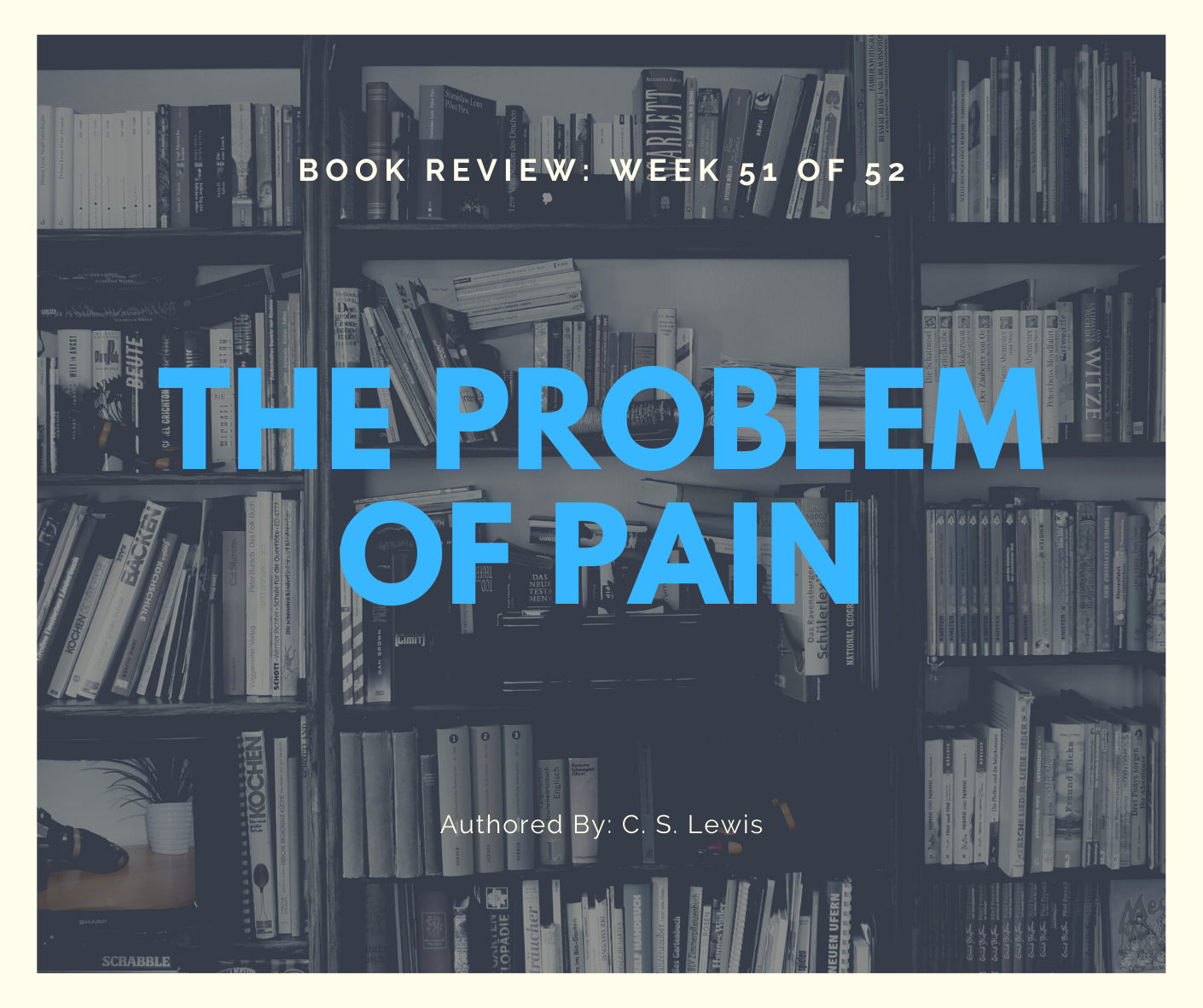The Problem of Pain by C. S. Lewis
“A man can no more diminish God’s glory by refusing to worship Him than a lunatic can put out the sun by scribbling the word ‘darkness’ on the walls of his cell.”
How can God be good when there is so much evil in the world? If God is good, then he would not let humanity experience pain. Humanity experiences pain, therefore, God is either not good or does not exist.
The problem of pain, suffering, and evil has been a constant question for humanity when trying to wrap its mind around the divine.
It is book 51 of 52 in the Tim Challies 2020 reading challenge, and for this book, I have chosen C. S. Lewis's The Problem of Pain.
Essentially, the great logician unpacks how God can be both good and all-powerful (omnipotent) and there still be pain, suffering, and evil in the world.
The real problem is not why some pious, humble, believing people suffer, but why some do not.
“We want not so much a Father but a grandfather in heaven, a God who said of anything we happened to like doing, 'What does it matter so long as they are contented?”
God is not a bearded grandfather in the sky. And because he is real and not a creation of our imagination, he does not act as we think would be good and proper of him. And praise God that he does not!
This is a delightful book and one that is quite easy to follow and helpful when considering the natural objections non-believers may have of God or Christianity. The flow of Lewis is fairly straight forward.
He maneuvers his readers into understanding both the character of God and man, and then describes from a pure logic standpoint, how God does not operate within the absurd or impossible. God's divine goodness emanates from his nature and cannot go contrary to his decree. Which for Lewis, God’s decree providing free will to his creatures satisfies how God could still be good and yet allow pain and suffering.
This then begs the question about pain and suffering. They are the result of the fall and the sinfulness of humanity. For God to end this condition would mean to end humanity. It is God’s goodness then that actually allows us to exist in pain that we might come to the fulness of knowledge in him.
I realize I have jumped over a significant portion of Lewis’ argumentation and standpoints, but that is the bare bones.
The surprising aspect of this book for me was to find clues to Lewis believing in some form of purgatory, which I had not previously known till this reading.
Overall, this is a classic and will not disappoint!












John Owen came from Welsh descent, was educated at Queens College, and became a renowned Puritan theologian, Oxford professor, and passionate pastor who lived from 1616 to 1683. In 1647, he wrote the exhaustive treatise The Death of Death defending Limited or Definite Atonement against the Arminian view of Universal Atonement or Unlimited Atonement.